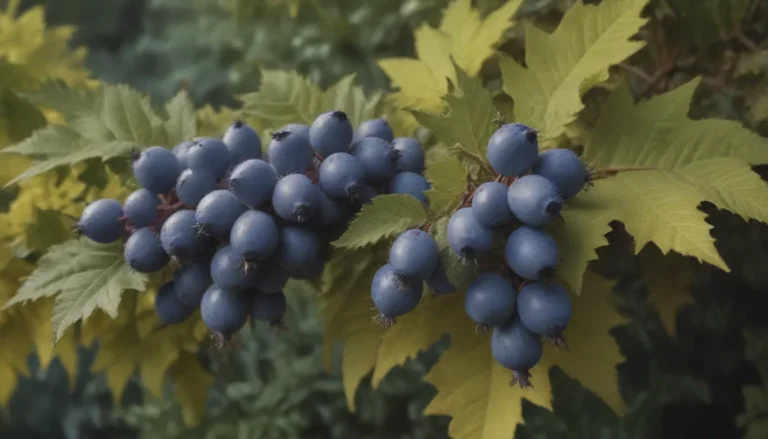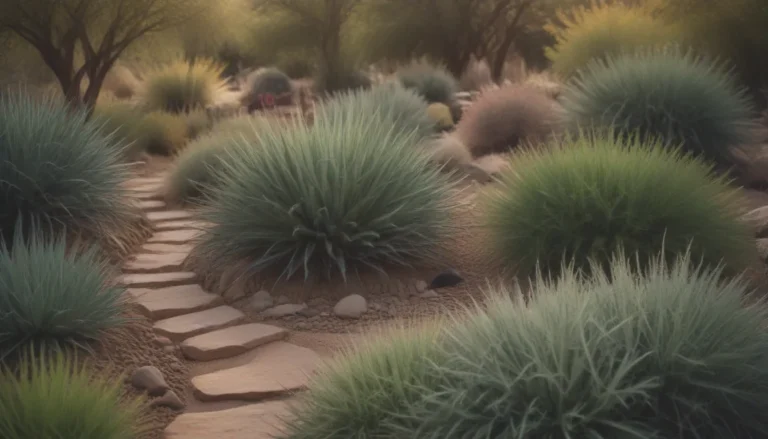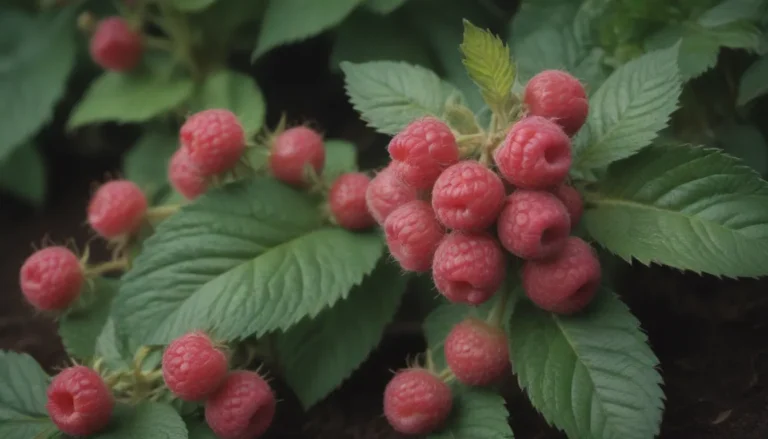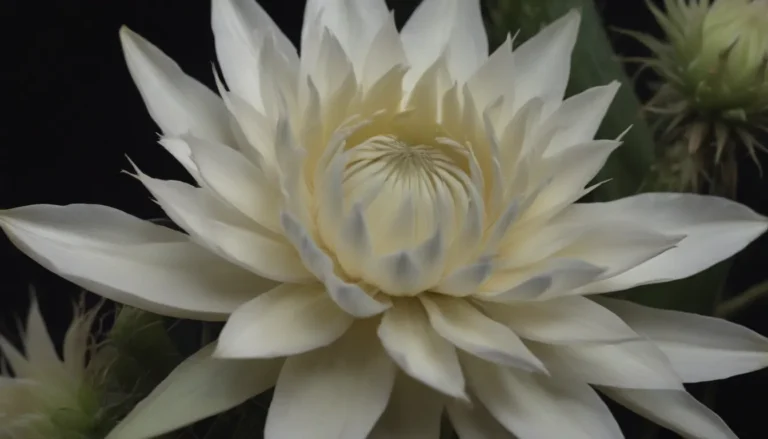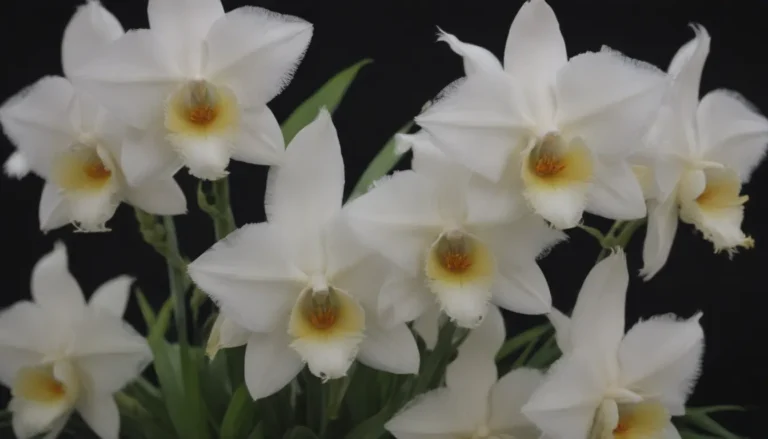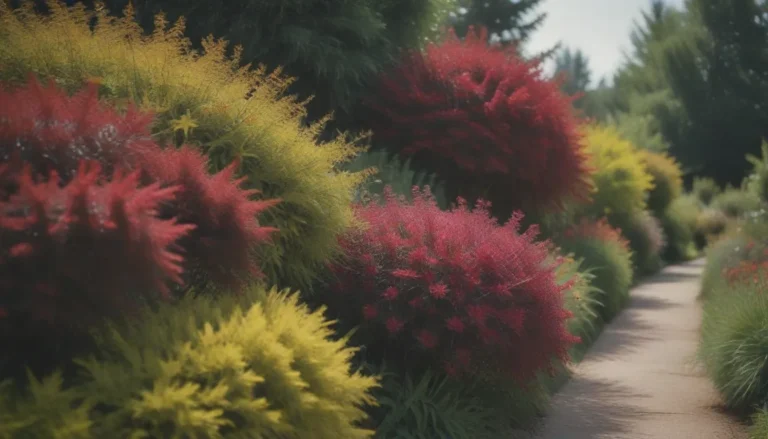The Ultimate Guide to Thorny Plants for Your Yard
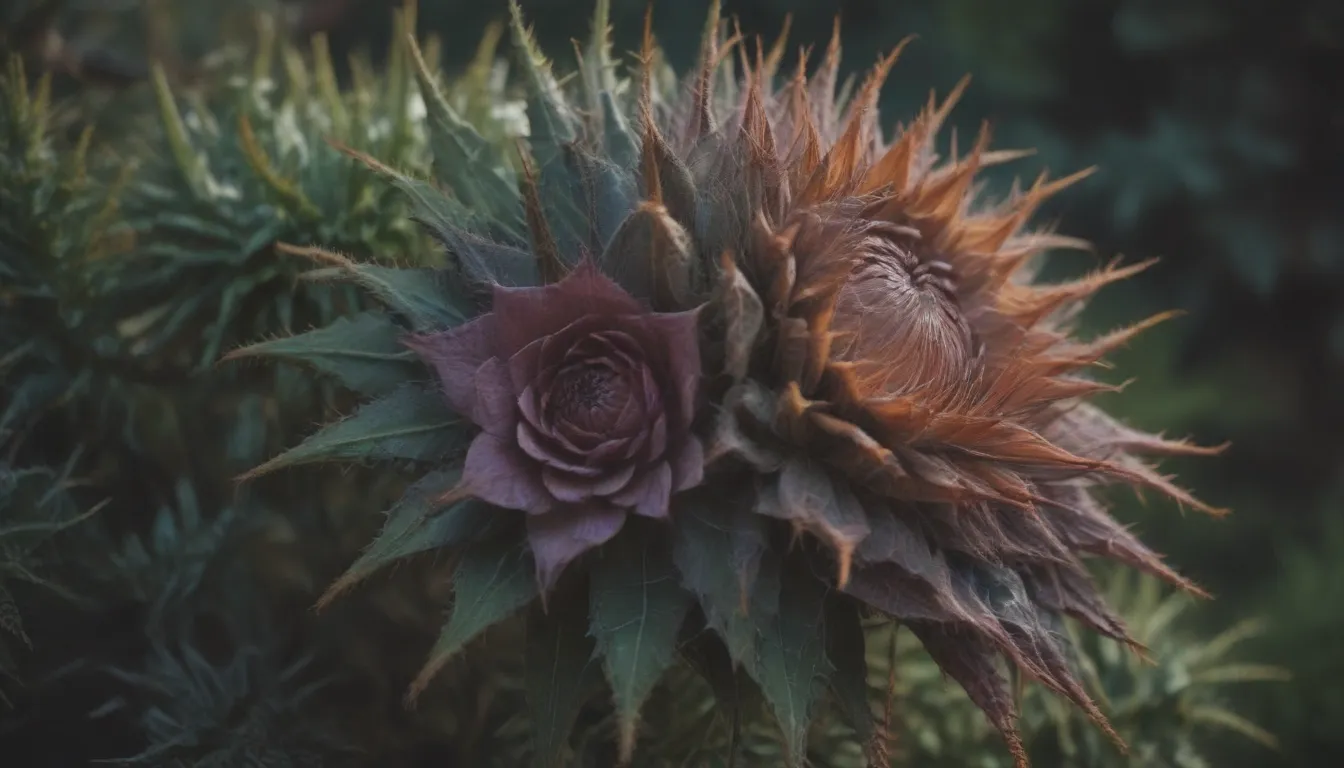
Thorny plants certainly have a bad reputation for being a bit prickly, but did you know that they can actually add value and visual interest to your yard? From hedges that keep intruders at bay to beautiful flowers that attract wildlife, there are so many benefits to incorporating thorny plants into your landscaping. In this comprehensive guide, we will explore 15 thorny plants that will look sharp in your yard. So grab your gardening gloves and get ready to transform your outdoor space!
Why Choose Thorny Plants?
Thorny plants are more than just a deterrent for unwanted guests in your yard. They also offer a range of benefits that make them a valuable addition to any landscape. Here are a few reasons why you might consider adding thorny plants to your yard:
- Deterrent: Thorny plants can act as natural barriers to keep animals and people out of certain areas of your yard.
- Visual Interest: The unique shapes and textures of thorny plants can add visual interest to your landscaping.
- Wildlife Attraction: Many thorny plants produce berries or flowers that attract birds, butterflies, and other wildlife.
- Low Maintenance: Some thorny plants are surprisingly easy to care for and require minimal maintenance.
Now that you know the benefits of thorny plants, let’s dive into our list of 15 plants with thorns that will elevate your yard.
Japanese Barberry
With its sharp thorns and vibrant foliage, the Japanese barberry is a classic choice for creating a hedge that is both functional and beautiful. This deciduous shrub features red, orange, purple, or yellow leaves in the fall, along with bright red berries that last throughout the winter. While Japanese barberry is relatively low-maintenance, it is important to note that it is considered invasive in certain states.
- Name: Japanese Barberry
- USDA Hardiness Zones:
- Color:
- Light:
- Soil:
- Mature Size:
English Hawthorn
The English hawthorn is a versatile plant that can be grown as either a small tree or a large shrub. Known for its thorny branches and dense foliage, this plant thrives in challenging environments, making it a great choice for areas with poor soil or pollution. English hawthorn requires good drainage to thrive.
- Name: English Hawthorn
- USDA Hardiness Zones:
- Color:
- Light:
- Soil:
- Mature Size:
Candy Oh Rose
If you’re looking for a low-maintenance flowering shrub, the Candy Oh Rose is an excellent choice. This deciduous bush blooms all summer and into fall without requiring much upkeep. With colorful flowers and sharp thorns, the Candy Oh Rose adds visual interest to your yard while deterring unwanted visitors.
- Name: Candy Oh Rose
- USDA Hardiness Zones:
- Color:
- Light:
- Soil:
- Mature Size:
Rainbow Knockout Rose
The Rainbow Knockout Rose is a repeat bloomer that requires minimal maintenance. This thorny rose bush produces single flowers in a variety of colors and is resistant to common diseases like powdery mildew and black spot. With its compact size, the Rainbow Knockout Rose is a great choice for a low-maintenance garden.
- Name: Rainbow Knockout Rose
- USDA Hardiness Zones:
- Color:
- Light:
- Soil:
- Mature Size:
Blushing Knockout Rose
Featuring fragrant pink flowers, the Blushing Knockout Rose is a compact and easy-to-care-for shrub. While deadheading is not required, it is recommended to do some rejuvenation pruning every other year to promote healthy growth. With its thorny branches and beautiful blooms, this rose bush is a lovely addition to any yard.
- Name: Blushing Knockout Rose
- USDA Hardiness Zones:
- Color:
- Light:
- Soil:
- Mature Size:
Beach Rose
The Beach Rose is a low-maintenance and salt-tolerant plant that thrives in a variety of challenging conditions. With minimal care, this thorny shrub produces beautiful blooms and can withstand poor soil, high winds, and drought. Pruning in late winter or early spring will help manage the size and shape of the Beach Rose.
- Name: Beach Rose
- USDA Hardiness Zones:
- Color:
- Light:
- Soil:
- Mature Size:
At Last Rose
For a more compact rose bush, consider the At Last Rose. This thorny plant requires deadheading to ensure reblooming and is susceptible to fungal diseases. Providing adequate air circulation and avoiding overhead watering will help keep the At Last Rose healthy and thriving in your yard.
- Name: At Last Rose
- USDA Hardiness Zones:
- Color:
- Light:
- Soil:
- Mature Size:
Red Flower Carpet Rose
The Red Flower Carpet Rose is a ground cover plant that produces clusters of fragrant red roses. With good disease resistance, this thorny rose bush is an excellent choice for adding color and texture to your landscape. Regular pruning will help maintain the shape and size of the Red Flower Carpet Rose.
- Name: Red Flower Carpet Rose
- USDA Hardiness Zones:
- Color:
- Light:
- Soil:
- Mature Size:
Nellie Stevens Holly
If you’re looking for a thorny plant that thrives in both full sun and partial shade, the Nellie Stevens Holly is an excellent option. This shrub requires well-drained soil and occasional feeding to stay healthy and vibrant. Just be cautious, as hollies are toxic and should be handled with care around children and pets.
- Name: Nellie Stevens Holly
- USDA Hardiness Zones:
- Color:
- Light:
- Soil:
- Mature Size:
Warning: Hollies are toxic. Exercise caution when children or pets will be present.
Blue Princess Holly
For a cold-hardy option, consider the Blue Princess Holly. With its evergreen leaves and prickly thorns, this shrub is a great choice for a low-maintenance hedge. Pruning in the winter will help control the size and shape of the Blue Princess Holly, ensuring it stays looking its best year-round.
- Name: Blue Princess Holly
- USDA Hardiness Zones:
- Color:
- Light:
- Soil:
- Mature Size:
American Holly
The American Holly is another fantastic option for a thorny shrub in your yard. With its prickly leaves and red berries, this evergreen plant is less susceptible to fungal diseases, making it a great choice for hedges and borders. The American Holly is a low-maintenance plant that adds texture and color to any landscape.
- Name: American Holly
- USDA Hardiness Zones:
- Color:
- Light:
- Soil:
- Mature Size:
Prickly Pear Cactus
For a unique addition to your yard, consider the Prickly Pear Cactus. While you may think of cacti as being native to hot deserts, the Prickly Pear Cactus is cold-hardy up to zone 4a. With its attractive flowers and minimal care requirements, this thorny plant is sure to add a touch of the southwest to your landscaping.
- Name: Prickly Pear Cactus
- USDA Hardiness Zones:
- Color:
- Light:
- Soil:
- Mature Size:
Firethorn
Known for its red or orange berries that attract birds, the Firethorn is a thorny shrub that adds both beauty and functionality to your yard. Evergreen in warmer climates, this plant is a great choice for creating natural barriers and providing food for wildlife. With minimal maintenance, the Firethorn is sure to thrive in your landscape.
- Name: Firethorn
- USDA Hardiness Zones:
- Color:
- Light:
- Soil:
- Mature Size:
Adam’s Needle
A slow-growing succulent with sharp spines and attractive flowers, Adam’s Needle is a unique addition to any yard. This broadleaf evergreen plant is easy to care for and adds a touch of drama to your landscaping. With proper maintenance, Adam’s Needle will thrive and provide year-round interest in your yard.
- Name: Adam’s Needle
- USDA Hardiness Zones:
- Color:
- Light:
- Soil:
- Mature Size:
Bougainvillea
If you’re looking for a thorny vine to liven up your yard, look no further than the Bougainvillea. This colorful plant is perfect for scaling courtyard walls and adding a pop of color to your landscape. With regular watering and pruning, the Bougainvillea will flourish and become a stunning focal point in your yard.
- Name: Bougainvillea
- USDA Hardiness Zones:
- Color:
- Light:
- Soil:
- Mature Size:
Incorporating thorny plants into your yard can add both beauty and functionality to your landscaping. Whether you’re looking for a natural barrier or a splash of color, there are countless options to choose from. With proper care and maintenance, thorny plants can thrive in your yard and provide year-round interest for years to come. So don’t be afraid to add a few sharp plants to your outdoor space and enjoy the benefits they bring to your landscape!
